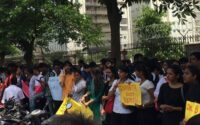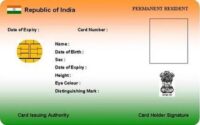The Indian Legal Legend: Fali S Nariman
This Article is written by Aditi Chauhan, a student of Banasthali Vidyapeeth and edited by our content head Shambhavi who is also a student of Banasthali Vidyapeeth.
An Indian Constitutional jurist, a senior advocate in Supreme Court since 1971, and known as an Indian ‘Legal Legend’. Fali Sam Nariman was born on 10th January 1929, in Rangoon, in a Parsi family, to Sam Bariyamji Nariman and Banoo Nariman. He had completed his schooling from, Bishop Cotton School, Shimla, and then went to St. Xavier College, Mumbai (then Bombay), from where he completed his B.A. (Hons.) in Economics and History.
After his graduation his father wanted him to sit in the Indian Civil Service Examination, but as he couldn’t afford it at that time so Fali chose law as his last option as a career and went to Government Law College, Bombay. In 1950, he stands first in the Advocate’s Examination and was awarded by the Kinlock Forbes Gold Medal and Prize for Roman law and Jurisprudence. Nariman started his law career as an advocate in Bombay High Court, where he practiced for 22 years and after that in 1971 was appointed as a senior advocate in the Hon’ble Supreme Court. Fali Sam Nariman had considered his senior’s senior, Jamsetjee Kanga as his mentor and said that he was like the father for him, Jamsetjee Kanga died at the age of 93 but he made him much inspired when at the age of 92 he told him that, he is still learning the law.
Nariman played an important role in the development of the Indian Constitutional Law, as he is India’s one of the most eminent constitutional lawyer and has argued many cases related to it. He remained the Additional Solicitor General from May 1972 and resigned from the post on 26th June 1975 at the time of emergency in the country. It happened then in 1999, that President Kocheril Raman Narayan, chose him as the member of the Rajya Sabha and he served for the period of full six years till 2005.
If we look upon the timeline of all his works and memberships then since1988 he remained the honorary member of the International Commission of Jurist and member of the London Court of the International Arbitration. In 1989, he has been selected as the Vice Chairman of the Internal Court of the Arbitration of the International Chamber of Commerce and in 1991 he was the President of Bar Association of India. In the year 1994, he served as the President of the International Council for Commercial Arbitration. Not only this, but he was also appointed to the United Nations Conference on Trade and Development in November 1999 and served as the Chairman of the Executive Committee of the International Commission of Jurist from 1995 to 1997.
Nariman argued several cases in his career, in many he won and in many he lose, but as the time passes and shows us the reality, then it also makes us realize that how wrong we were in our decisions and makes us regret of them, in the same way, he also regrets his decisions in some of his cases. Nariman fought many major cases like Bhopal Gas Tragedy Case, Golak Nath Case, S P Gupta Case and TMA Pie Case which played an important role in marking the history and landmark decisions in the legal world of the Indian Constitution.
The contribution which was made by him in these cases has given a new way of functioning of the Indian Judiciary. The major changes which had been taken in the judiciary were regarding the appointment of judges. He has also written various books on Indian legal and judiciary systems like God Save the Hon’ble Supreme Court, India’s Legal System, Commentary on the Arbitration and Conciliation Act and also written his autobiography Before Memory Fades: An Autobiography.
He was been awarded by the Padma Bhushan in 1991, Padma Vibhushan in 2007 and the second-highest civilian award Gruber Prize for Justice in 2002. Also, he has been awarded the 19th Lal Bahadur Shastri National Award for excellence in Public Administration in the year 2018.


